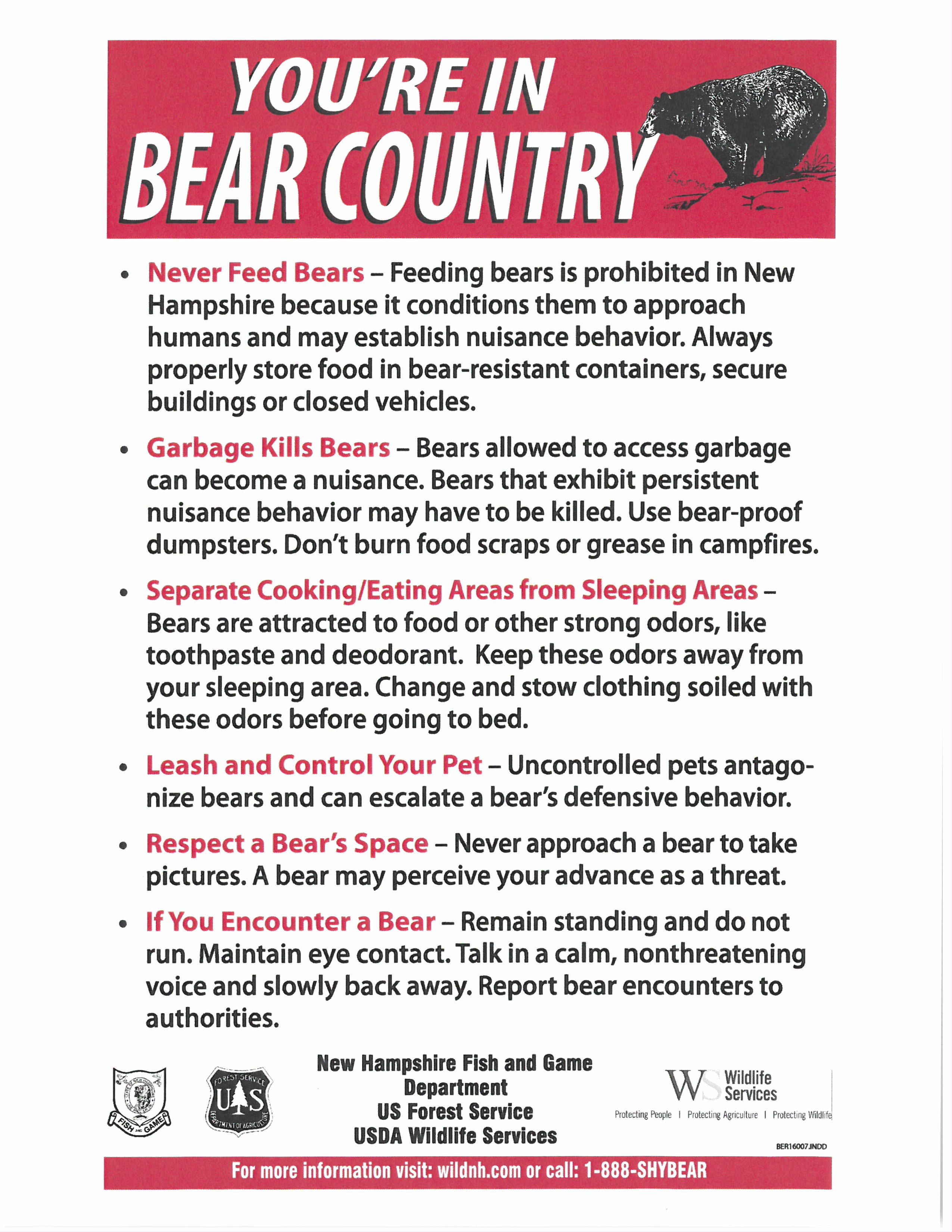USDA Wildlife Services has provided useful links and information to prevent conflicts with bears below;
“Prime black bear habitat includes deciduous forests (oaks, maple, beech etc.), wetlands, and riparian (along rivers) zones. The natural areas surrounding your town provide very good habitat for black bears. Many human-bear conflicts arise when bears frequent properties to access food attractants that are found around homes. The most common attractants are birdfeeders, unsecured garbage, and compost piles which include food scraps. Livestock, such as chickens and pigs, can also attract bears when not properly protected. Electric fencing is the most effective way to protect livestock. In most cases removing the attractant the bear(s) are utilizing eliminates the bear problem. It is also helpful to harass bears with noise, such as banging pots and pans, or using compressed air horns to scare them away.”
https://wildlife.state.nh.us/wildlife/bears/index.html
https://wildlife.state.nh.us/wildlife/bears/faqs.html
http://www.wildlife.state.nh.us/wildlife/profiles/black-bear.html
http://wildlifehelp.org/animals/new-hampshire
YouTube Videos:
Bears and Chickens
Bears and Birdfeeders
Bears and Dumpsters

